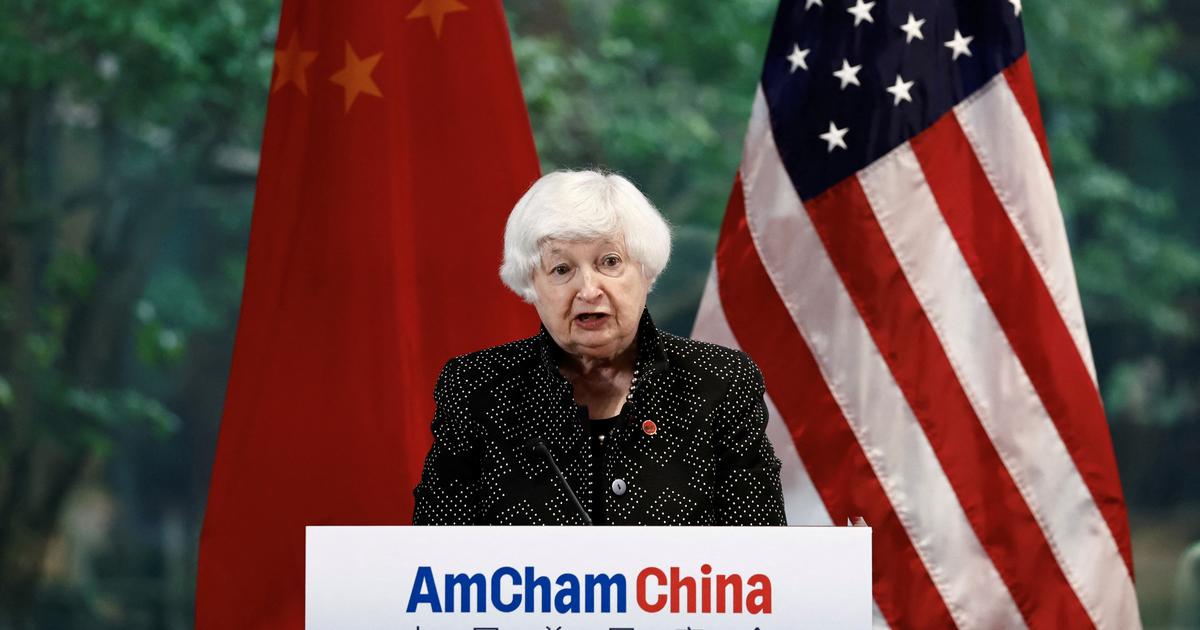The US and Europe used the Munich Security Conference to emphasize a common struggle for democracy.
But the struggle over China policy continues.
Munich / Washington - It was not the main topic of the virtual meeting of the G7 and the Munich Security Conference - and yet the proverbial elephant in the room: China.
When American President Joe Biden vowed the democratic states to a joint solution to the world's problems at the Munich Security Conference, it quickly became clear who these challenges were: Authoritarian states, which, according to Biden, are calling the liberal world order into question, above all China and Russia.
“We have to prove that our democracy is not a relic of history,” shouted Biden.
He may have been alluding to the fact that the state media in Beijing repeatedly used the chaotic presidency of his predecessor Donald Trump to publicly question the blessings of democracy and to portray the USA and the West as cultures in decline.
“Democracy works when we all work together,” said Biden with conviction.
Joe Biden: Joint preservation of democracy and a liberal world order - against attack from China
The preservation of democracy and a liberal world order seems to be an affair of the heart for Biden.
He spoke with great passion, as if he were standing in front of a hall full of people and not in front of a video camera.
Whether Biden succeeded in getting the Europeans - both the EU and the member states - on board, despite all the joy of America's return to the diplomatic stage, was not yet clear on Friday.
Chancellor Angela Merkel (CDU) also emphasized at Siko that we had to “develop a common agenda towards China”.
But she stayed with the well-known EU balancing act: “On the one hand, China is systemic competitor.
On the other hand, we need China to solve global problems such as biodiversity and climate protection. "
+
At the Munich Security Conference, Angela Merkel proposed projects to reclaim lost spaces to China.
© Guido Bergmann / dpa
At the same time, however, she emphasized: "China has also gained in global clout in recent years, and we as a transatlantic alliance and as democracies of the world have to counter this with action." So there seems to be a willingness to take joint action.
But how could that look in practice?
First approaches to a common policy: international vaccination diplomacy against going it alone by China and Russia
A first approach shimmered through on Friday: recapturing abandoned or lost rooms.
For example with the help of its own vaccine diplomacy: So that not only Russia and China should deliver their Covid 19 vaccines to the countries of Africa, the West could also promote vaccination on the continent via the G7 group or with the help of the international Covax vaccination program for developing countries, said Merkel.
French President Emmanuel Macron said that in Africa vaccination of health workers in Africa would require around 13 million doses that could be delivered.
If you just give the affected countries money, they would order the vaccines from China or Russia.
Even before the G7 summit, Macron had
asked
in an interview with the
Financial Times
that at least five percent of the vaccine doses currently available should be made available to developing countries.
Merkel brought another aspect into play: multilateral institutions like the World Health Organization (WHO), the World Bank, the World Trade Organization (WTO) and the International Monetary Fund have to be strengthened again.
"Wherever we were" weak, where we could not decide quickly enough to make changes or capital increases, for example, "other structures in Asia have often emerged under the leadership of China." The institutions mentioned by Merkel are among the cornerstones of US-led liberal world order.
Biden had just rejoined the WHO - Trump had led the US out of the WHO.
China: how much cooperation is necessary, how much confrontation is right?
Since Biden took office, the USA and Europe have been struggling to find a common course in China - and above all the question of how much cooperation is right.
While the US is caught in a trade conflict with China, the Europeans rely on economic cooperation.
China overtook the US as the EU's largest trading partner in 2020;
At the end of the year, Brussels signed an investment agreement with Beijing - against the recommendations of the then “elected President” Biden, but to wait until he took office.
But Biden now also said at Siko that cooperation with China was necessary.
The benefits of progress should reach everyone, not just a few.
In a speech at the beginning of February, Biden emphasized that he was ready to cooperate if this was in America's interest.
"The competition with China will be intense," said Biden.
“And that's what I'm waiting for, because I believe in the global system that we built together.” Biden doesn't want Beijing to dispute the leadership of this system.
NATO Secretary General Jens Stoltenberg also said that alliances were urgently needed in dealing with China.
The rise of China in particular could have an impact, which is why it is important to strengthen relationships with Japan or Australia, for example.
stressed Stoltenberg at Siko.
NATO must defend its rules, also internally - for example by protecting their own democracies.
NATO will have to focus more on Asia.
And the debate about the right China policy will continue.
(ck)









